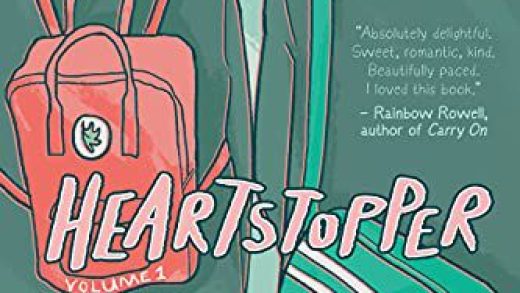“I feel cluttered when there is no time to analyze experience. That is the silt — unexplored experience that literally chokes the mind.” These were the words that first introduced me to poet and novelist May Sarton earlier this year. I just happened to come across the quote in a post on an Instagram page I follow that pastes Tumblr posts across moody but aesthetically pleasing backgrounds (@dead.academics).
The quote, from Sarton’s Journal of a Solitude, resonated with me immediately. I recognized my creative self within its lines, someone for whom who I’ve had to make space in my adult life or else my own unexplored experience will, quite literally, choke my mind. But no amount of past cluttered feelings or chokings of the mind would prepare me for the emotional turmoil brought about by the lockdown solitudes of the COVID-19 pandemic.
Perhaps the quote resonated even stronger with me this year than any other year as I’ve had to fight my own intrusive thoughts to get back to a place of feeling creative. As much as we can have compassion for the people we were in 2020, considering all that we’ve lived through in the last 18 months, it doesn’t necessarily make up for the amount of stress, fear, anxiety, and other cluttered feelings that left many creatives feeling rightfully blocked.
When I first read Sarton’s words, “I feel cluttered when there is no time to analyze experience,” it was really summarizing the period of over six months where I was so paralyzed by anxiety and panic that I didn’t have any energy left to channel into my personal creative pursuits. It was the reason my scrapbook went untouched from May until November last year.
Naturally, whenever I’m affected so deeply by a quote, I’m going to start exploring the author’s work further — especially considering I’d ashamedly never even heard of May Sarton before. A collection of her poetry was one of the first books I checked out of my library in person after a months-long lockdown, and her words undoubtedly contributed to a slow but sure renewal of my own creative energy. I wouldn’t have wanted to say it out loud at the time in fear of jinxing myself, but maybe the period of calm I was able to have after the monster-size storm of 2020 was not only a gift given to me by myself, but also by the words and creativity of the authors and characters I chose to surround myself with.
After making my way through Sarton’s poetry, I decided maybe it was time to check out the journal that had inspired this deep dive into my own creative psyche. Part of me didn’t want to read something called Journal of a Solitude while still somewhat stuck in my own version of solitude. (Just because one is vaccinated doesn’t mean there are still a lot of places to go.) But then I reminded myself that in order to be freed of the weight of the last year’s demons, I had to face them. And while no one can say for certain which direction our global health crisis will go in next, I could say with certainty that I had come a long way from the person who first entered lockdown 18 long months ago.
Sarton writes through much of her own depression, remarking that the joke is on her to think that she could ever outrun it by exporting her own emotions by way of spending time with other people — something most introverts can undoubtedly confirm. “There is no doubt that solitude is a challenge and to maintain balance within it a precarious business. But I must not forget that, for me, being with people or even with one beloved person for any length of time without solitude is even worse,” she writes. “I lose my center. I feel dispersed, scattered, in pieces. I must have time alone in which to mull over my encounter, and to extract its juice, its essence, to understand what has really happened to me as a consequence of it.” And when one has little free time away from the intrusive thoughts brought about by the spread of a deadly virus, it’s difficult in any context to understand what has really happened to us. Yet another reason why I found the “introverts have it easy in quarantine” narrative to be quite false and harmful.
“I don’t know whether the inward work is achieving something or whether it is simply the autumn light,” ponders Sarton, “but I begin to see my way again, which means to resume myself.” I don’t know about you, but I spent a great deal of time in the last year and a half feeling selfish for feeling stressed or anxious about the state of things when I knew, for a fact, that I had it so much easier than others. I wasn’t a frontline worker. I didn’t lose my job or my entire industry as a result of mass shutdowns. I was able to solider on in my life from home, and it didn’t feel right to complain about having to go for walks on a schedule to keep my mind from consuming me whole. It didn’t feel right to act like I had lost anything, even though I had, given the urgency of our global situation. So last winter when I suddenly began feeling a bit more like a person again, I had a similar realization: was it my own inward work I had done having no other choice, or was it the calm, cold rush of the February sun that I love but everyone else hates? Whatever it was, I began to see my way again, which does in fact mean to resume myself. And for once in my life, being myself and taking up space didn’t feel selfish or like a burden.
“The value of solitude — one of its values — is, of course, that there is nothing to cushion against attacks from within,” she writes, “just as there is nothing to help balance at times of particular stress or depression.” It’s almost comical to think that this was written in the early 1970s and not in our current era, since there are countless similar quotes that summarize our last year of solitude.
Last year, I would have gladly told you that no amount of past lived experiences could ever explain the unprecedented emotions that had accompanied our unprecedented times. But that was long before I had discovered Journal of a Solitude, and even if I’d had it during those first few months of this ongoing hellscape, I wouldn’t have appreciated or listened to it. I hadn’t yet lived through enough of my own newfound solitude or turmoil to have been able to recognize Sarton’s wisdom. Which is why I will unabashedly believe, until the day I die, that books have their own forms of magic and intuition to know exactly when to waltz into our lives.
Source : On Reading May Sarton’s JOURNAL OF A SOLITUDE After Our Own Year of Solitude












